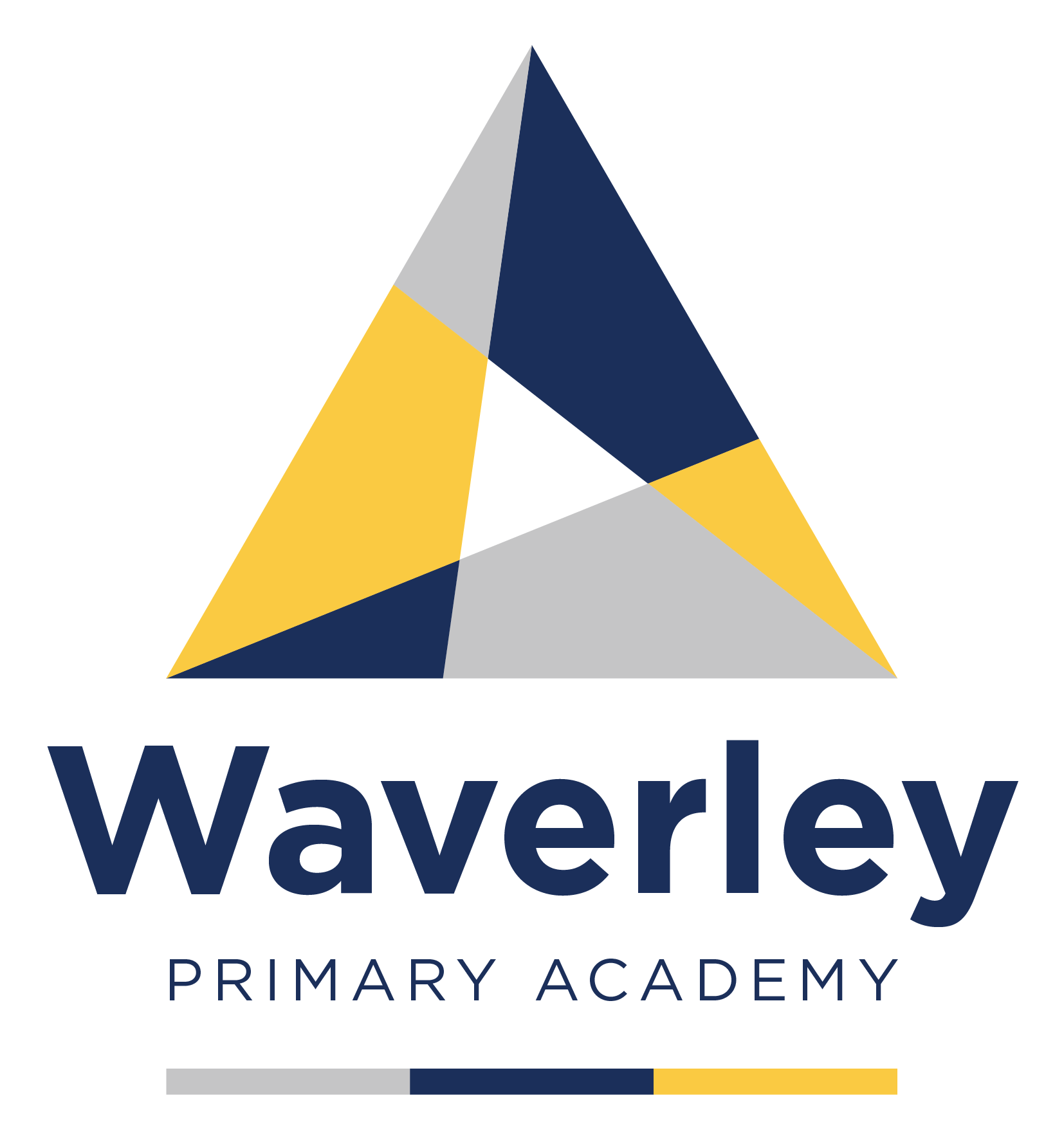Mathematics
National Curriculum Aims
Purpose of study
Mathematics is a creative and highly inter-connected discipline that has been developed over centuries, providing the solution to some of history’s most intriguing problems. It is essential to everyday life, critical to science, technology and engineering, and necessary for financial literacy and most forms of employment. A high-quality mathematics education therefore provides a foundation for understanding the world, the ability to reason mathematically, an appreciation of the beauty and power of mathematics, and a sense of enjoyment and curiosity about the subject.
Aims
The national curriculum for mathematics aims to ensure that all pupils:
- become fluent in the fundamentals of mathematics, including through varied and frequent practice with increasingly complex problems over time, so that pupils develop conceptual understanding and the ability to recall and apply knowledge rapidly and accurately.
- reason mathematically by following a line of enquiry, conjecturing relationships and generalisations, and developing an argument, justification or proof using mathematical language
- can solve problems by applying their mathematics to a variety of routine and non-routine problems with increasing sophistication, including breaking down problems into a series of simpler steps and persevering in seeking solutions.
Mathematics is an interconnected subject in which pupils need to be able to move fluently between representations of mathematical ideas. The programmes of study are, by necessity, organised into apparently distinct domains, but pupils should make rich connections across mathematical ideas to develop fluency, mathematical reasoning and competence in solving increasingly sophisticated problems. They should also apply their mathematical knowledge to science and other subjects.
The expectation is that the majority of pupils will move through the programmes of study at broadly the same pace. However, decisions about when to progress should always be based on the security of pupils’ understanding and their readiness to progress to the next stage. Pupils who grasp concepts rapidly should be challenged through being offered rich and sophisticated problems before any acceleration through new content. Those who are not sufficiently fluent with earlier material should consolidate their understanding, including through additional practice, before moving on.
Information and communication technology (ICT)
Calculators should not be used as a substitute for good written and mental arithmetic. They should therefore only be introduced near the end of key stage 2 to support pupils’ conceptual understanding and exploration of more complex number problems, if written and mental arithmetic are secure. In both primary and secondary schools, teachers should use their judgement about when ICT tools should be used.
Spoken language
The national curriculum for mathematics reflects the importance of spoken language in pupils’ development across the whole curriculum – cognitively, socially and linguistically. The quality and variety of language that pupils hear and speak are key factors in developing their mathematical vocabulary and presenting a mathematical justification, argument or proof. They must be assisted in making their thinking clear to themselves as well as others and teachers should ensure that pupils build secure foundations by using discussion to probe and remedy their misconceptions.
School curriculum
The programmes of study for mathematics are set out year-by-year for key stages 1 and 2. Schools are, however, only required to teach the relevant programme of study by the end of the key stage. Within each key stage, schools therefore have the flexibility to introduce content earlier or later than set out in the programme of study. In addition, schools can introduce key stage content during an earlier key stage, if appropriate. All schools are also required to set out their school curriculum for mathematics on a year-by-year basis and make this information available online.
Attainment targets
By the end of each key stage, pupils are expected to know, apply and understand the matters, skills and processes specified in the relevant programme of study.
Intent, Implementation and Impact
Intent
The 2014 National Curriculum for Maths aims to ensure that all children:
- Become fluent in the fundamentals of mathematics
- Can reason mathematically
- Can solve problems
At WJA these skills are developed progressively over time. We want all children to enjoy Maths, recognise the importance of Maths in the wider world, and be able to apply their mathematical knowledge in a range of different contexts. We develop children’s curiosity about the subject, as through the promotion of STEM activities, our children appreciate the beauty and power of mathematics. We want all our children to be successful in Maths.
Implementation
To guarantee long-term learning for all our pupils, the curriculum is organised and carefully sequenced so that children can master key foundational knowledge which is built up progressively over time. All teachers reinforce an expectation that all children are capable of achieving high standards in mathematics.
The vast majority of our pupils progress through the curriculum content at their age-related level engaging in appropriate, cognitively challenging activities.
The content and principles underpinning the Maths curriculum at WJA:
Whole class delivery –
Lessons are planned based on formative assessment of what pupils already know. Teaching is underpinned by methodical curriculum design and supported by well-designed lessons and resources to foster deep conceptual and procedural knowledge. At the planning stage, teachers consider how they will model a concept, the scaffolding that may be required for pupils struggling to grasp concepts and suitable challenge questions for those who may grasp the concepts rapidly. Scaffolding is essential and we follow the concrete-pictoral-abstract approach so that all learners can make sense of mathematical concepts.
Fluency is a focus for all learners. Once pupils have grasped a concept, and evidenced this through practise, they move onto applying that leaning in more challenging problem solving and reasoning.
Groupings are fluid and will change daily based on pupils’ understanding. Teachers use a number of AfL strategies, including marking, to establish pupils’ level of understanding. Differentiation is achieved by emphasising deep knowledge and through individual support and intervention.
Developing fluency-
At WJA, we ensure all children have a secure and deep understanding of each concept taught. Our medium term plans allow pupils longer on each topic. Our plans are based on the White Rose Hub and each unit plan is supported by a detailed progression document, which outlines small components, potential misconceptions, and key vocabulary. This supports progression within each maths lesson and over time. By breaking down knowledge into smaller components, teachers can develop pupils’ automaticity and reduce the risk of overloading their working memory.
Fluent in basic facts –
At WJA, we believe to be successful mathematicians, core knowledge needs to be recalled accurately and with speed. To reflect the relationship between rapid recall of facts and how to tackle a problem / question, declarative knowledge is sequenced alongside procedural knowledge. Number fact knowledge is carefully sequenced throughout WJA to ensure a secure foundation of knowledge for the children’s mathematical journey of learning.
Questioning –
Teachers use hinge point questions in class to test conceptual and procedural knowledge and assess children regularly to identify those requiring intervention, so that all children keep up. Questions will probe pupil understanding throughout, and enable some children to take their learning to the next step.
Problem Solving –
Problem solving is integrated into each unit. Teachers model examples, metacognition strategies and resilience to develop a deeper understanding of the logical processes used to solve problems.
Assessment –
AfL techniques are used to establish progress and the learning is modified as a result of this. Teachers adapt each lesson to meet the needs of their pupils and add extra questioning / tasks which will allow children to learn the content more deeply. Summative assessments (White Rose) are used termly in Year 3, 4 and 5 and previous SAT papers are used in Y2 and Y6 half termly to feed into ongoing teacher assessment.
Impact
The impact of our mathematics curriculum will be shown through:
- Summative assessments, of arithmetic, reasoning and problem solving, using White Rose tests and SAT papers.
- Termly moderation of mathematics with individual year groups, both within the academy and across ACET, supporting staff for robust teaching assessment judgements.
- Monitoring of progress from year to year and key stage to key stage, ensuring pupils remain ‘on track’ from their starting points.
- Following the MER cycle, regular monitoring of books, lessons and pupil voice.
LONG TERM PLANNING
Our long-term plans are developed from the National Curriculum and White Rose Maths. They include key concepts and cross-curricular links. Please click below for the planning.
MATHS EXPECTATIONS
All children at Waverley Junior Academy are clear about our Maths Expectations. These are stuck in the front of every Maths book.

Maths @ Waverley Junior Academy
Maths Week
At Waverley Junior Academy, Maths Week is an opportunity to reinforce children’s love for maths. Below are photos of activities which took place during the week:
KS1 went on a very tricky scavenger hunt. Their team work skills were amazing and they successfully cracked the code!


KS2 had fun applying their times table knowledge to a variety of maths activities. They participated in 'Hit the button' and Times Table Rockstars battles, played times tables and target games, and played dominoes multiplication-style. They had a go at code cracking, and worked well in teams to solve the puzzles.
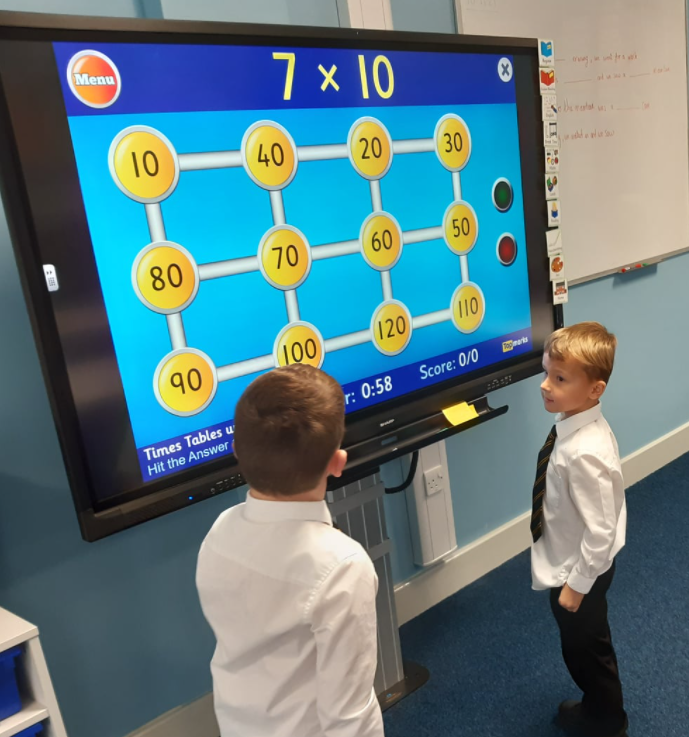
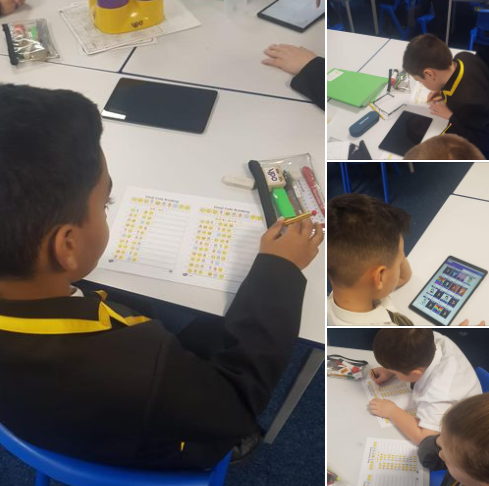
The TTRockstar battle for children in Y2-Y6 illustrated just how competitive Waverley’s children are.
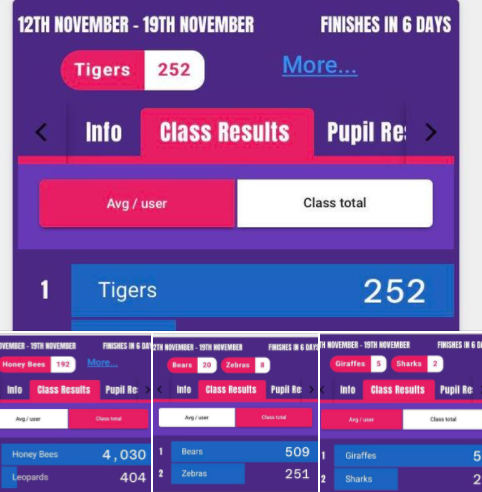
National Number Day
Each year, in February, we celebrate National Number Day. This year our theme was 'Maths puzzles'. Groups of children from each class came together to complete maths games and puzzles. They had great fun thinking mathematically.
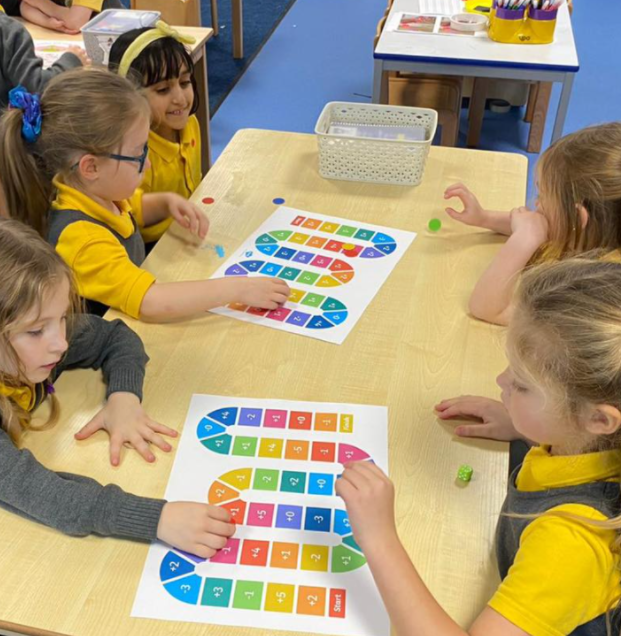

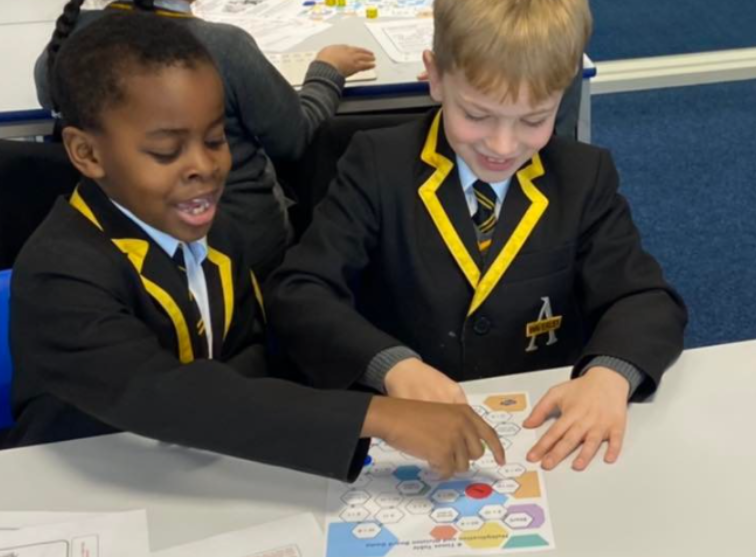
Useful Links
Times Tables Rock Stars - Become a Rock Hero and Battle Against the Clock
Please see parent guide on accessing TTRockstars at home.
Important Documents
